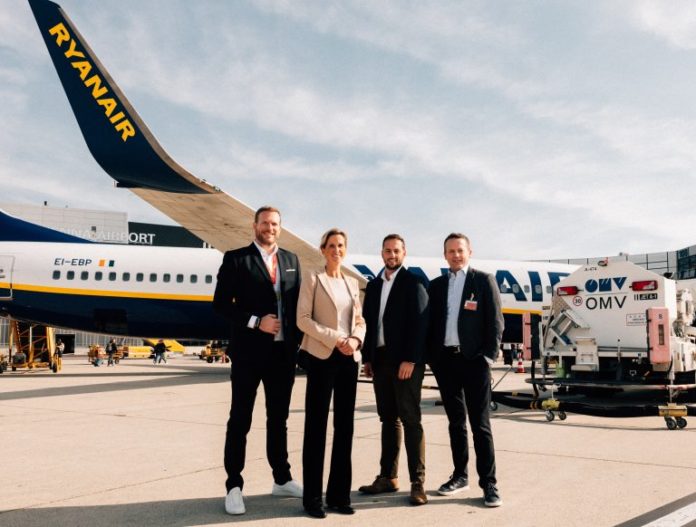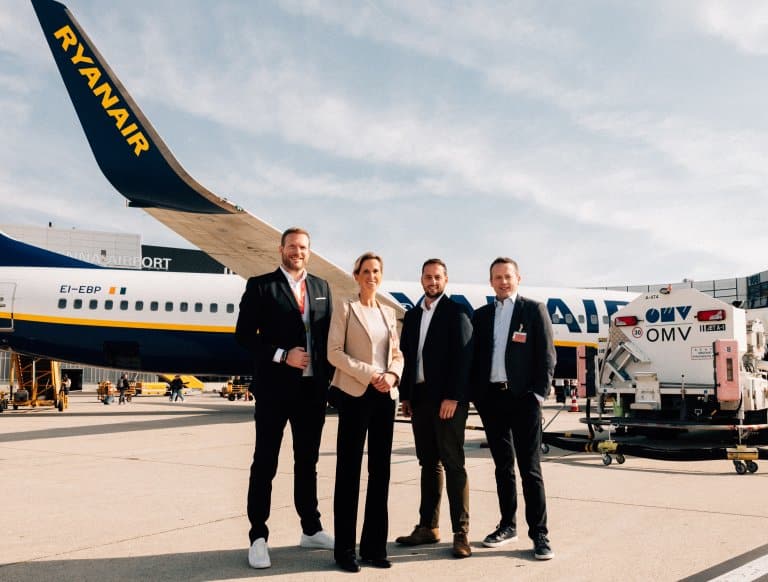
Ryanair has purchased 500 tonnes of sustainable aviation fuel (SAF) from OMV, the international integrated oil, gas and chemicals company.
This agreement will save over 1,250 tonnes in CO2 emissions (equivalent to approximately 100 Ryanair flights from Dublin to Vienna).
This purchase follows on from the MoU agreement made between the companies last year, providing Ryanair with unique access to purchase up to 160,000 metric tonnes of SAF from OMV up to 2030.

Ryanair said the deal shows its continued commitment towards its 12.5% SAF use by 2030 target, as well as the airline and OMV’s ambition to achieve net-zero emissions by 2050.
Ryanair has already significantly advanced these commitments by partnering with Trinity College Dublin to open the Ryanair Sustainable Aviation Research Centre, investing $22bn in its ‘Gamechanger’ fleet, which reduce CO2 emissions by 16% and a further $40bn investment for 300 Boeing 737 MAX-10 aircraft which reduce CO2 emissions by 20% while carrying 21% more passengers.
OMV is also implementing numerous measures to achieve its ambitious strategic sustainability goals with SAF an essential contributor to this transformation.
It is OMV’s ambition to become a regional leader in the supply of SAF.
Ryanair’s Head of Sustainability, Steven Fitzgerald said: “SAF plays a key role in our Pathway to Net Zero decarbonisation strategy in which we have committed to increasing our use of SAF over the coming years – a commitment that this deal with OMV will help move further forward. OMV is a key partner for Ryanair in Austria, Germany and Romania and we look forward to growing this partnership as Europe’s largest airline Group.”
Martijn van Koten, OMV Executive Vice President Fuels & Feedstock, said:
“We are building a growth business for Sustainable Aviation Fuel to support the industry’s journey towards a more sustainable future. We are proud of our partnership with Ryanair that allows both companies to leverage their expertise in promoting the use of SAF. This facilitates the transition towards the application of more sustainable forms of energy and helps reduce the climate impact of aviation.”




